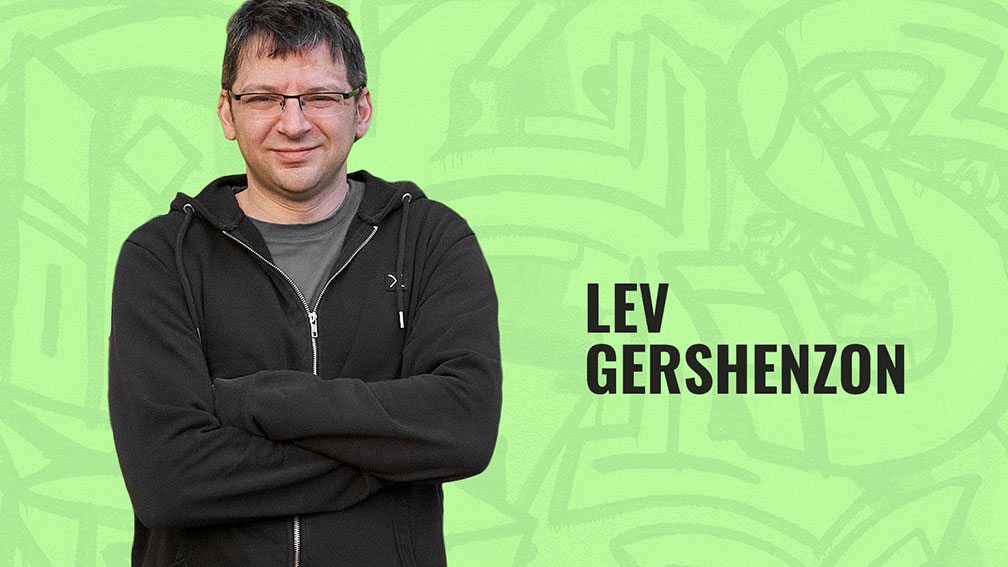With both Yandex and Google aiding [the Kremlin] in pursuing its hostile information policy, the majority of Russians see the world very different from what it is in reality. Lev Gershenzon, former Head of Yandex.News (2007–2012), is currently working at The True Story, a new censorship-free news aggregator. The True Story was launched on 22 August 2023 and blocked in Russia just three days later. Following the publication of his research paper by the German Council on Foreign Relations, he spoke to EUvsDiSiNFO.
Source — EUvsDiSiNFO — September 12 —

Earlier this year, you and your colleagues wrote a research paper for the German Council on Foreign Relations on Google’s role in disseminating pro-Kremlin disinformation in Russia. Could you give our readers a brief overview of the main findings of your analysis?
In this research we examined what news sources were mostly displayed by Google News and Google Discover during the last four years. These are two different products – Google News is a news aggregator with both web and mobile versions; Google Discover is a mobile-only content recommendation application. But they are closely connected in terms of the content they offer to users.
After the beginning of Russia’s full-scale invasion of Ukraine, some notorious Russian propaganda outlets were excluded from these services, whereas dozens of less-known and formally privately owned outlets that spread Russian propaganda remain and get a lot of traffic from Google.
Another important fact is that although Google News is well-known globally, it has a very small audience in Russia. Google Discover’s recommendations, however, reach more than 80% of Russian citizens, as all Android smartphones have the Google Chrome browser and Google Discover pre-installed.
Help us put this into context. How popular is Google in Russia compared to Russia’s own Yandex and other platforms?
Yandex and Google are two main rivals in web search in Russia having similar market shares, but Google exceeds Yandex in mobile search by 15%.
Similarly to Google Discover, Yandex has its own media recommendation engine – Dzen – present on its main page with tens of millions of visitors daily. Ownership of Dzen was recently transferred to VKontakte [VKontakte is controlled (57,3%) by Sogaz, a state-run insurance company, which is part-owned by banker Yuri Kovalchuk, a long-time ally of Putin; and the CEO of VKontakte is Vladimir Kiriyenko, the son of Sergey Kiriyenko, First Deputy Chief of Staff of the Presidential Administration of Russia], but the service is still available at yandex.ru and dzen.ru.
Google, on the other hand, owns and operates one of the two main social platforms in Russia that have not been blocked so far – YouTube. It is a space where independent and opposition journalists and bloggers may still freely publish their content. No comparable Russian alternatives to YouTube have emerged so far.
So Yandex – or VKontakte, the new owner of its media assets – and Google are the two main platforms through which more than 90% of all news content is distributed. But Google has a bigger overall audience.
Have there been any developments since you published the report?
Since I first wrote about Google’s role in spreading pro-war propaganda among Russians in January 2023, no significant changes in the algorithms or statistics – more than 20 million clicks and 100 million headline reads daily, according to LiveInternet – could be noticed. Most notorious propaganda outlets like Komsomolskaya Pravda, URA.RU, and Tsargrad.tv still receive anywhere between hundreds of thousands and millions of clicks daily.

In some respect the situation has actually gotten worse. For example, the neutral, well-known, and respected newspaper Kommersant was totally excluded from both Google News and Google Discover in May 2023 with no explanation. At the same time, barely known pages with semi-automatically generated content gain hundreds of thousands of referrals daily, blitz.plus being the biggest of its kind.
Did you share your findings with Google as well? Did they react in any way? If not, what hands-on advice would you give them to close the loopholes you and your colleagues found?
From the very first days when I discovered this problem back in January 2023, I started writing about it publicly and tried to attract the media’s attention to this problem. I described it as an algorithmic bug and suggested that Google should fix it promptly if they did not want to deliberately spread Putin’s propaganda. A former colleague of mine currently working on Google Discover thanked me for the signal and promised to fix it in February, but then nothing happened. I have tens of acquaintances and friends working for Google now – none of them disagreed with me, but none of them also was able to suggest a working solution.
Fixing this loophole is not difficult, we can definitely help with advice, but I do not think Google lacks good advice. The main thing is for Google to acknowledge the problem and decide that it has to be solved.
As you said, most people in Russia actually prefer Yandex. As you used to head Yandex News back in the day, could you describe what the world looks like to Yandex’s users? How much does it differ from Western platforms?
I have not worked for Yandex for more than 10 years now. And for all those years the news service, the company, the country, and its citizens have been changing. They have all changed dramatically – 10 years ago, no one could have imagined that Russia would be waging a full-scale war against Ukraine with no significant resistance from society.
Yandex News was much less censored when I was working there. There were many more independent, quality media outlets and almost no blocked websites. To put this in context, more than 200,000 websites have been blocked since the beginning of the full-scale invasion. All these factors matter and influence the mindset of Russians. The internet is the most popular channel for receiving information both about global and local events. So now with the Kremlin dominating major news services online, with both Yandex and Google aiding it in pursuing its hostile information policy, the majority of Russians see the world very different from what it is in reality. They believe they are surrounded by enemies, in a besieged fortress, waging an existential war of survival.
There are no silver bullets and no immediate cures, but if Google would stop participating in this, the positive impact would be hard to overestimate.
About the interviewee: Lev Gershenzon, former Head of Yandex.News (2007–2012), is currently working at The True Story, a new censorship-free news aggregator. The True Story was launched on 22 August 2023 and blocked in Russia just three days later.
Editor’s note: Recently, the European Commission published a report entitled, ‘Digital Services Act: Application of the risk management framework to Russian disinformation campaigns’. The report concludes that during the first year of Russia’s illegal war in Ukraine, social media companies enabled the Kremlin to run a large-scale disinformation campaign targeting the European Union and its allies, reaching an aggregate audience of at least 165 million and generating at least 16 billion views. Preliminary analysis suggests that the reach and influence of Kremlin-backed accounts has grown further in the first half of 2023, driven in particular by the dismantling of X’s (previously Twitter’s) safety standards.










